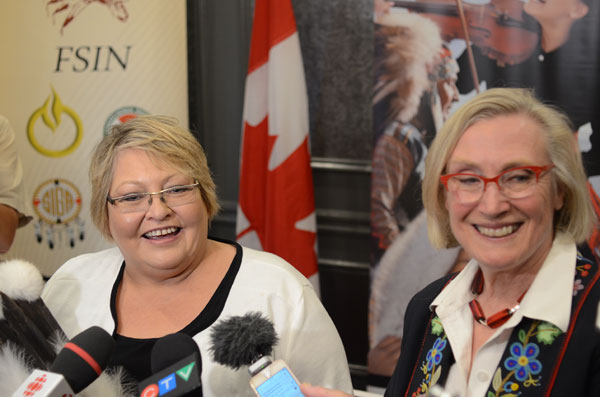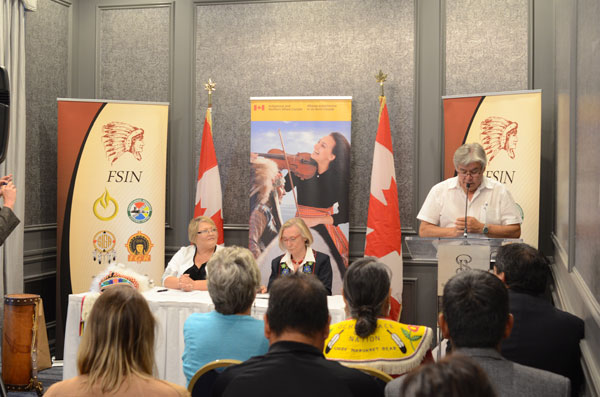First Nations, federal gov't sign accord to restore Indigenous control over children in care
- Katie Doke Sawatzky | July 25, 2017
The federal government and the FSIN signed a letter of accord to work together on an initiative that will start the process of restoring the control of Indigenous child welfare to First Nations communities and leadership.
Minister of Indigenous and Northern Affairs Canada Carolyn Bennett signed the accord with Federation of Sovereign Indigenous Nations Vice-Chief Heather Bear in Regina. The federal government is committing $450,000 to the project.
“With this funding all First Nations in Saskatchewan and federal and provincial leaders will collaborate on a plan to redesign how Child and Family Services are delivered to First Nations in this province, including, and importantly, models of delivery that support First Nations’ jurisdiction and governance,” said Bennett.
According to INAC, there are currently 16 First Nations Child and Family Services agencies delivering services to 66 First Nations in Saskatchewan, with the province delivering services for five communities and children off-reserve.
Related:
- STC accepts Court of Queen's Bench ruling
- STC, province enter dispute over child welfare files
- Opinion: Tribal Chief says STC won't let province take over First Nations children in care
- Sask. Advocate report raises concerns about services for infant in care
Indigenous children make up seven per cent of all children in Canada, but 48 per cent of foster children, according to a 2011 Stats Can report. In Saskatchewan, approximately 80 per cent of children in out-of-home care were Indigenous, one of the largest percentages in the country.
At the signing, Minister Bennett said the number of Indigenous children in care right now is higher than the amount of children who were taken away from their families during the height of the residential school system.
“At the heart of our work together will be the goal to keep families together, to keep children out of care in the first place and to ensure that prevention services are actually grounded in communities,” said Bennett.
Bear said the $450,000 is the first step.
“It’s not nearly what we need to complete the job, but it’s an acknowledgement,” she said.
Bear said the Indigenous CFS Task Force, the political group mandated to will present a recommendation to the FSIN chiefs at their assembly in August in regard to the funding. She said the FSIN social development secretariat will be “dusting work off form the last decade.” The money is will fund engagement and strategic planning for a long-term turnover of Indigenous CFS to Indigenous control and jurisdiction.
“I believe that we will see the day when our nations delegate the authority or the responsibility to the agencies and they’re fully funded for the best interest of our children,” said Bear.
Before the minister and vice-chief spoke, Chief Margaret Bear from Ochapowace First Nation and a member of the Task Force, welcomed the minister, addressing the importance of the step taken by both governments is a good start.
“As a woman, as a mother, as a kookum, grandmother, I understand where we hurt as life-givers when we see our children hurt, when we see our children taken from us from our communities. It hurts right here,” she said.
“It’s time, Canada, to start working with us,” said Bear.


